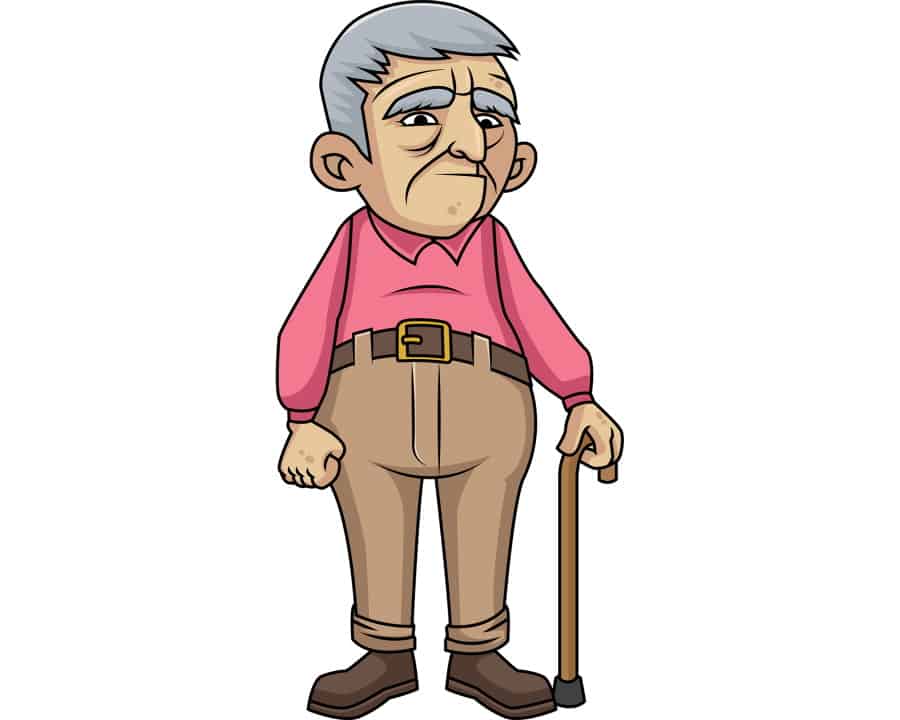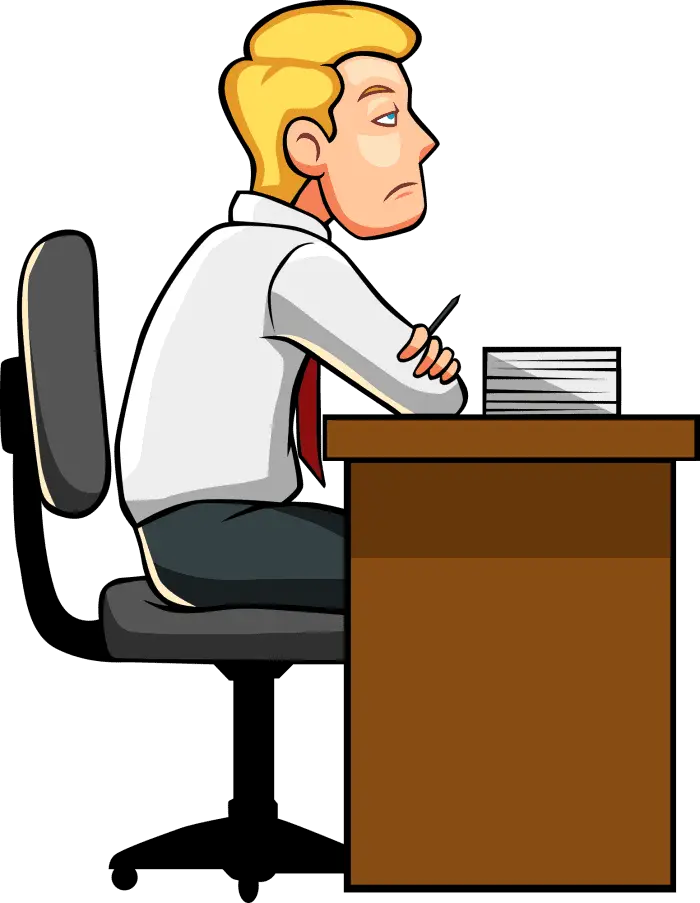You may have noticed yourself not laughing as much as you used to, or perhaps it’s someone you love who seems less joyous. Sometimes this could just be a couple ‘bad days’ in a row or sometimes it could be something more substantial. Is it possible to lose a sense of humor?
A lost sense of humor is possible with age, societal pressure, and health altering one’s personality traits. This not only can happen on a personal level, but can become pervasive in society as well. It is possible to reverse a decreased sense of humor in most cases, making the loss temporary.
As someone who’s struggled with humor, that is, getting jokes and being seen as funny, I was intrigued by the notion of lost sense of humor. I have seen aspects of this issue in myself, my own kids, and in many students throughout the years. Here’s what I’ve learned and how it informs my idea of sense of humor as a mom and teacher.

Contents
Can you lose the ability to laugh?
It’s agreed that physical or mental trauma, illness, or even life stress can influence a person’s expression of happiness, which is most often evident by laughter. However, is it actually possible to lose the ability to laugh?
Surprising, but rare, it is possible to lose the ability to laugh, which is called aphonogelia by the American Academy of Physical Medicine and Rehabilitation. However, for most people, the loss of laughter is temporary and can be reversed once underlying causes are appropriately addressed.
Aphonogelia: the inability to laugh audibly
American Academy of Physical Medicine and Rehabilitation
So, yes, you can lose laughter, but it’s extremely rare. In fact, there is very limited medical documentation of this occurrence. One example of aphonogelia is a 2018 reported case of a 16-year-old girl who suffered a trauma to the brain, resulting in her inability to laugh aloud, although she retained the capability to smile.
When physical trauma is not a reason, though, we’re likely to find that the inability to laugh out loud is a result of emotional or psychological problems. When someone experiences severe depression, for instance, they may lose (temporarily) the will to laugh, resulting in them not laughing aloud.
Is this important enough to correct, as far as laughter is concerned? I think most agree that a person suffering from severe depression requires immediate medical and expert intervention regardless of its affect on the ability to laugh. However, for a fulfilled quality of life, addressing ‘losing laughter’ apart from and in addition to depression should be taken seriously.
W.S. Poland wrote in the American Journal of Psychiatry, “The Place of Humor in Adult Psychotherapy”, that humor is essential for growth, both cognitively and emotionally. Other studies such as this 2012 study by N.A. Kuiper expounds the resiliency effect of humor.
In yet another example, there’s the study from Suzanne Krogh as published in Early Child Development and Care (2006) providing evidence of the importance to teach humor in early education for its learning benefits.
Therefore, losing the ability to laugh, albeit rare, is serious enough to warrant medical care and attention.
Losing Sense of Humor From Aging
In addition to the rare case of aphonogelia, losing a sense of humor can be a result of aging. Let me explain.
Aging can cause a lost sense of humor, at least temporarily. From tweens and teens shucking fun to act mature to young adults overwhelmed by responsibilities to the elderly with health concerns, challenges through different life stages can influence sense of humor.
So let’s take a look at three particular life stages and how challenges and obstacles we face can affect our sense of humor. Briefly, I’ll address tweens and teens; young adulthood; and late adulthood (elderly).
Tweens and Teens Too Cool for Humor
Probably the first changes parents notice in their tweens and teens as they through adolescences are frequent sulkiness and attitude superiority. Why do tweens and teens think it’s uncool to be humorous or have fun?
It’s common for tweens and teens to try to exert their maturity by acting overly serious, which can manifest, temporarily, in a lost sense of humor. When this happens, parents may notice that tweens and teens act sulky and/or refuse to participate in activities they once saw as fun.
Signs your tweens and teens are ‘too cool’ for fun:
- They spend more time in their room than with the family.
- They stop participating in family functions.
- They don’t smile.
- You don’t hear them laugh like they used to.
- They don’t celebrate holidays like they used to, such as trick-or-treating for Halloween or looking at lights for Christmas.
The Try Not To Laugh Challenge– 11 Year Old Edition (Amazon linked) can be used to get your tween/teen out of his or her ‘cool’ shell and remind them about the fun of laughter. It’s’ full of ideas to engage your tween/teen humorously and comes highly recommended on Amazon according to hundreds of reviewers rating it 4.3 out of 5.

Suggestions for helping your too cool tweens and teens:
- Talk about the changes you’re seeing in them.
- Provide examples of how it’s still okay to have fun and show humor.
- Watch funny things together (Examples: YouTube animal videos, AFV, or age-appropriate comedies and comedians).
- Do fun, family activities-whether or not they like it.
- Role model good humor, so they can see it’s a part of your adult, mature life.
Young Adults Working Hard to Lose Sense of Humor
Though most tweens and teens seem to get back their lost sense of humor by the time they turn 18 years old, loss is often a recurrence upon entering adulthood. Why does it seem young adults lose their sense of humor?
Young adults often lose a sense of humor due to becoming overwhelmed by adult responsibilities and expectations. From work place issues to managing bills to acclimating to new routines, young adults are challenged to maintain a sense of humor in their transition from parental support.
Problems for young adults that can cause loss of sense of humor:
- Time constraints: For many it’s the first time they’re solely responsible for getting somewhere ‘on time’.
- Job Stress: Young adulthood is the first stage for experiencing outside expectations and responsibilities tied to livelihood.
- New Routines: Usually this is when someone steps out on their own, living in a new place with a new job and encountering new people and relationships, causing extra stress.

So what is one to do if you’re the parent of a sullen young adult who seems to have lost his or her sense of humor? Or if you are that person?
Tips to help young adults experiencing loss of humor:
- Keep lines of communication open. Be there as a sounding board when they’re overwhelmed.
- Find someone to regularly talk to about interests and issues to keep you grounded if you are the young adult.
- Try to maintain some sort of customs or traditions together. It’s reasonable for your adult kids to not make it to all celebrations but encourage them to honor most important ones.
- Be flexible. Remember your kids are now adults with adult responsibilities, so keep that in mind.
- Perhaps start a new hobby together. ‘Playing together’ is a natural way to embed humor.
Alzheimer’s and Dementia Affect a Sense of Humor
After a seemingly, mostly peaceful time in adulthood, many elderly experience a lost sense of humor. Why do some people lose their sense of humor in late adulthood?
Like tweens, teens, and young adults, elderly may experience lost sense of humor. Alzheimer’s disease and dementia, as well as other health concern worries, can impact the elderly’s sense of humor. Some of these conditions are irreversible and sadly can lead to a permanently altered sense of humor.
Although further research is needed in the area, one 2016 study found that patients suffering from Alzheimer’s disease and dementia showed an altered sense of humor in comparison to other age-similar individuals in the test groups. Particularly, satire, irony, and sarcasm were affected.
The contrast was so marked that altered perception of humor is suggested as an early indicator of the mental disease. In this case, a lost sense of humor is not only an inconvenience or ‘something to work on’. Here it takes on the somber role of being a symptom of a debilitating disease.
Then again, some elderly seem to lose their sense of humor due to other health-related concerns. These problems cloud their judgment and can even alter their normal personality that people had come to expect from them. These conditions and ailments affect quality of life, making just day-to-day living almost unbearable at times.
Ailments commonly affecting late adulthood:
- Strokes
- Heart attacks
- High blood pressure
- Diabetes
- Arthritis
When this happens, it’s not surprising that a sense of humor may decrease or go by the wayside.
Then, there are those that just get grumpy in old age, having lost loved ones or dealt with issues of abandonment. This has led to the stereotype of ‘curmudgeons’ who rarely laugh and are upset with anyone they encounter.
Side note: One of my favorite children’s books is called Those Darn Squirrels (available on Amazon) which is about a curmudgeon upset over squirrels eating his bird feed. It’s so fun to read aloud and my students absolutely loved it! I highly recommend it if you have young children or grandchildren, considering it’s also a great source of diverse reading, with its elderly main character.
Some suggestions to help elderly who seem to have lost their sense of humor is to spend time with them; involve them in activities with your family and communicate concerns. It might just take a helping hand to bring a smile back!
People that would fall into this category may not only have lost at least some portions of their old sense of humor, but they may have also become more susceptible to other forms of humor. Though an elderly relative may have been more light hearted and easy to laugh in their younger days, now they may relate to more cynical, ironic, or dry humor.
If you have loved ones suffering from Alzheimer’s disease or dementia, unfortunately, it is more challenging to address humor. Try to find the joy in lucid moments and for times of incoherence or unbalance, it’s best to discuss with their doctor what might work because it’s different on a case-by-case basis.
For more on humor, I highly recommend these articles:
- I Have No Sense Of Humor: How Can I Make Kids Laugh?
- 6 Things That Determine Sense of Humor
- How To Bring Humor Into The House (Explained)
Modern Society’s Lost Sense of Humor
A lost sense of humor doesn’t just affect us individually as humans, anymore. It’s becoming common for an entire culture or society to suffer from loss of sense of humor. What should we know about a culture or society’s lost sense of humor?
Many think today’s modern society as a whole has lost its sense of humor. Attempts to tackle perceived racism or sexism, as well as misconstrued heroics for seemingly underserved populations, have caused backlash to popular comedians and workplace grievances for common people in everyday life.
Time will tell just how temporary this loss is. The change even if temporary could leave lasting scars that our children will have to deal with in time.
For example, comedian Ricky Gervais said it’s more challenging to do typical comedy today. He said he has no problem holding comedians accountable if they cross boundaries with racist or sexist jokes, but feels it’s better to let ‘demand’ do that with people deciding on their own whether or not to watch comedy shows or buy tickets to their events in lieu of direct censorship.
Unfortunately, it’s becoming more and more commonplace for media, politicians, celebrities, and ‘do gooders’ to call for firing of actors, singers, or other popular personalities anytime they disagree or say something at all differing from media viewpoints.
This fake sense of virtue and morality on the part of these self proclaimed ‘hall monitors’ of comedy is getting so pronounced that it is not something we can all just laugh off or chalk up to current fads.
Countless have lost incomes and whole careers from things said or done decades ago- losing roles in movies or programs, product sponsorships deals, and so on.
All of this is in response supposedly to social awareness or acts of justice; however, it very seriously impinges upon freedom of speech and capitalism.
Censorship is wrong in the name of ‘social’ justice in the same way adding any word in front of justice diminishes justice itself by excluding portions of society from accessing it.
Tips regarding society’s lost sense of humor:
- Think for yourself. Avoid media influence regarding extreme reactions or consequences.
- Enjoy what you’ve typically found humorous and when it doubt, ask yourself, what harm has been done? If none, then stop worrying!
- Be willing to share your thoughts on humor with your friends and family.
- Live your own life and resist urges to monitor others.
- And like Gervais said, take a stand with your dollars rather than try impact what others do. Capitalism is essentially billions of individual votes (dollars) every day made by every day average citizens on a myriad of topics.
How Depression and Other Disorders Impact a Sense of Humor
A lost sense of humor is also related to depression and other psychological disorders. And with a rise in the diagnosis of psychological disorders today in our country, it’s more and more of a concern. So what should we know about this?
Depression and other psychological disorders can cause a temporary or permanent lost sense of humor, depending upon its severity, as well as the success of treatment. Therefore, it’s vital that those suffering from disorders affecting personality such as sense of humor receive proper treatment.
In actuality, depression and other psychological disorders are on the rise across the board. According to the International Journal of Epidemiology depression and suicide ideation increased exponentially in young adults from 2005 to 2015.
As well, the CDC reports depression has risen in almost all demographics in the past years, and “increases were higher across the spectrum of depression severity” showing a rise in mild depression cases to severe.
Now to be clear, there are examples of those who counter or cover up depression through humor. Comedian Robin Williams is as well-known for his humor as he is for having had depression (he sadly committed suicide in 2014 at the age of 63). Yet, for many, depression is a cause for lost sense of humor, not an elevation of humor.
Tips for dealing with depression-related lost sense of humor:
- Not all depression is the same. Depending upon the severity, it may be necessary to seek medical support.
- Keep communication open.
- Try to avoid judgmental statements.
- Involve loved ones in fun, family activities.
- Keep fun activities flexible and simple.
The Punchline for Lost Sense of Humor
It may seem unusual, but it’s possible to lose one’s sense of humor, temporarily or permanently. Let’s recap what was said:
- Although rare, cases of permanently losing the ability to laugh aloud (called aphonogelia) have been documented.
- For most, losing a sense of humor is a temporary occurrence.
- Tweens/teens, young adults, and elderly may lose a sense of humor due to pressures and challenges typical of the particular life stage.
- Alzheimer’s disease, dementia, depression, and other psychological disorders can alter one’s sense of humor.
- Modern society can even affect humor in misguided attempts to stop racism and sexism.
For more on humor, I highly recommend these articles:
- I Have No Sense Of Humor: How Can I Make Kids Laugh?
- 6 Things That Determine Sense of Humor
- How To Bring Humor Into The House (Explained)
Other Resources
